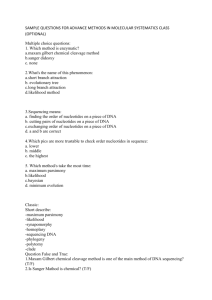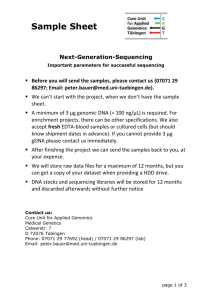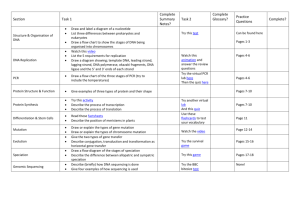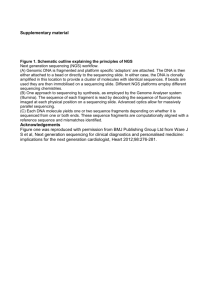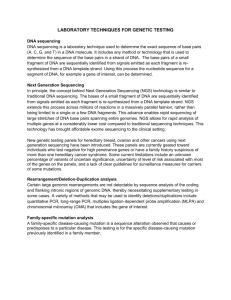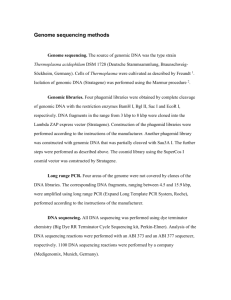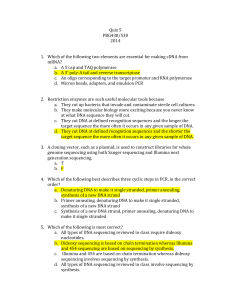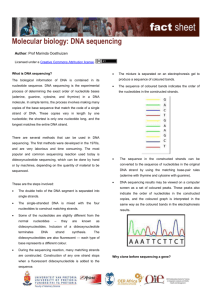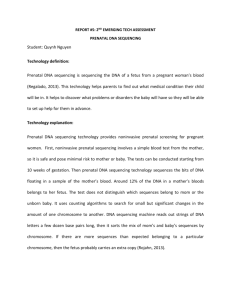Poster for biology DNA or genes sequencing is the determination of
advertisement
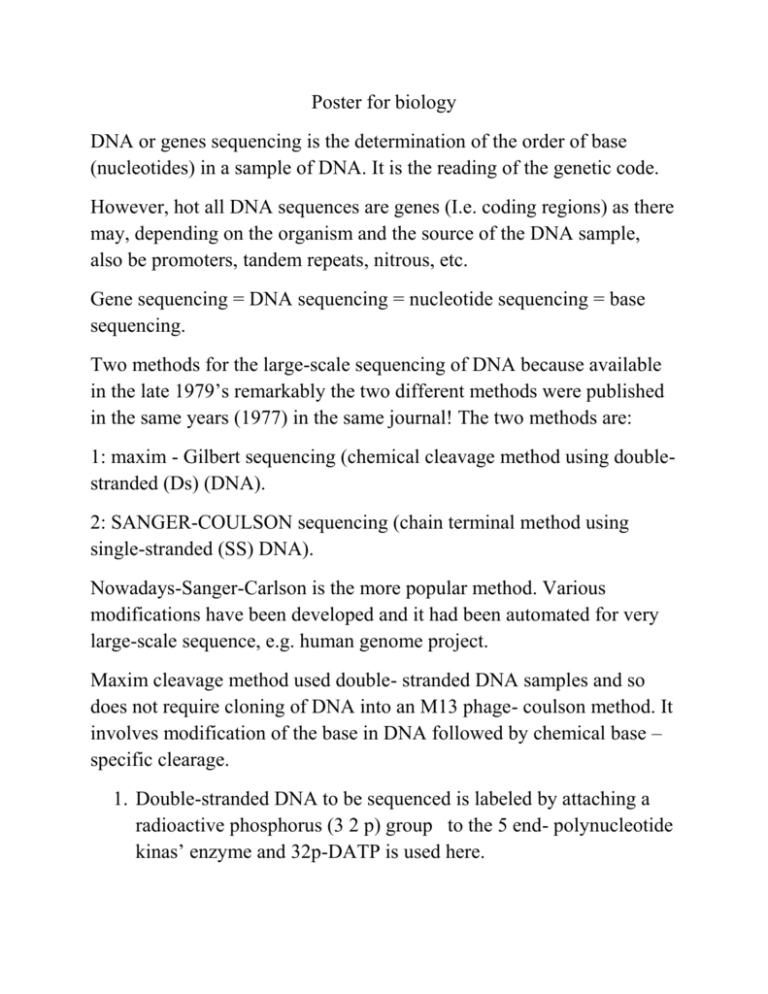
Poster for biology DNA or genes sequencing is the determination of the order of base (nucleotides) in a sample of DNA. It is the reading of the genetic code. However, hot all DNA sequences are genes (I.e. coding regions) as there may, depending on the organism and the source of the DNA sample, also be promoters, tandem repeats, nitrous, etc. Gene sequencing = DNA sequencing = nucleotide sequencing = base sequencing. Two methods for the large-scale sequencing of DNA because available in the late 1979’s remarkably the two different methods were published in the same years (1977) in the same journal! The two methods are: 1: maxim - Gilbert sequencing (chemical cleavage method using doublestranded (Ds) (DNA). 2: SANGER-COULSON sequencing (chain terminal method using single-stranded (SS) DNA). Nowadays-Sanger-Carlson is the more popular method. Various modifications have been developed and it had been automated for very large-scale sequence, e.g. human genome project. Maxim cleavage method used double- stranded DNA samples and so does not require cloning of DNA into an M13 phage- coulson method. It involves modification of the base in DNA followed by chemical base – specific clearage. 1. Double-stranded DNA to be sequenced is labeled by attaching a radioactive phosphorus (3 2 p) group to the 5 end- polynucleotide kinas’ enzyme and 32p-DATP is used here. 2. Using dime try sup oxide and heating to 90c, the two strands is likely to be heaving that the order due to the fact that it contains more Purina nucleotides (A and G) that pyrimidenes ( C and T ) which are lighter).
